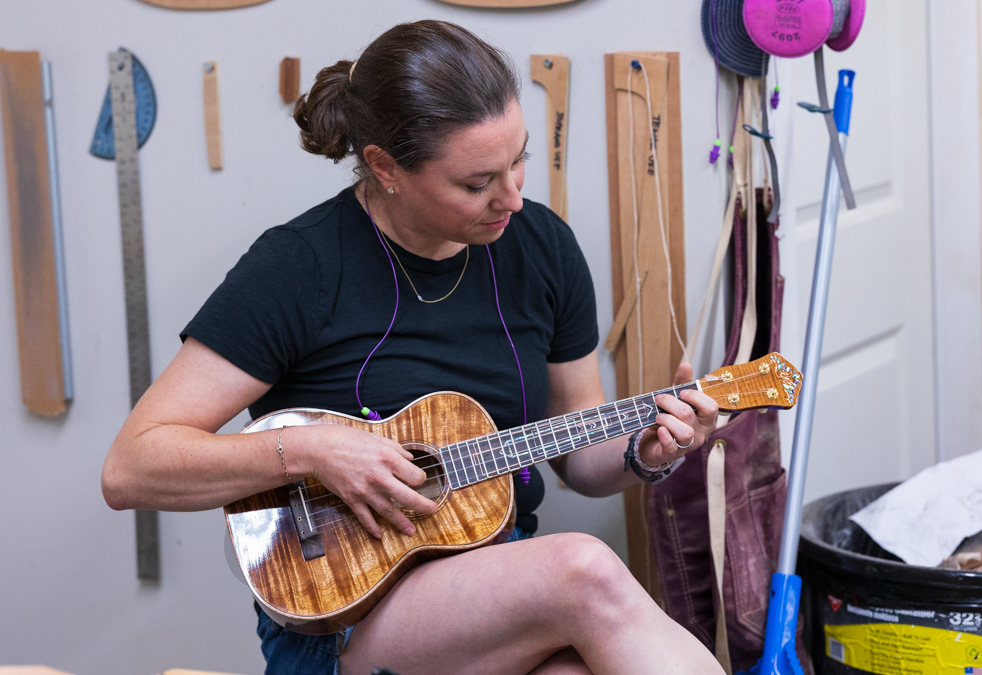West Virginians have already played a significant role in hurricane recovery efforts in North Carolina – but usually that has meant sending funds or heading to the sight of destruction.
Last week, a Mountain State native now based in Asheville returned to his childhood roots, where he found more than a little help from his old friends. He arrived in Charleston with a load of pickled ramps and headed for the kitchen at 1010 Bridge – arguably one of West Virginia’s most famed restaurants.
“I don’t cook. I don’t know how to cook,” joked the owner, James Beard winner Chef Paul Smith.
Beside him was Chef William Dissen, a 2024 James Beard semi-finalist in the Best Restaurant category. The two childhood friends from Charleston got together for a week-long benefit to help Dissen, now based in Asheville, reopen in the aftermath of Hurricane Helene.
Smith rattled off the three course menu…starting with a candy roasted squash soup followed by a foraged mushroom toast with pickled ramps.
“And then we’ve got a cider braised pork shank with kind of a farro risotto, or ferratto, with our collard greens, and we finish out with the herb gremolata…. It is nothing but Appalachian,” Smith said.
Dissen selected the recipes for the benefit straight from the pages of his new “Thoughtful Cooking” cookbook – with a nod to his grandparents’ Jackson County farm.
“They ate seasonally,” Dissen said. “They grew a garden, they preserved, they foraged, and they did all these things that are kind of indigenous to our West Virginia Appalachian region.”
Like so many other youngsters in the region, his grandmother would have a 10-year-old Billy Dissen string beans and shuck corn under a scorching sun. It was hard work that fostered a lifetime of resilience he’s drawing on right now.
“She said, ‘Alright, Billy, go pick some corn.’ And I ran out to the field, and, you know, waddled back with the arm load of fresh corn, and we shucked it and slattered it with butter. And I just remember going, ‘This is the best corn I’ve had in my whole life,’” he said.
Dissen released the book earlier this year, then reveled in his restaurant’s first-ever nod from the James Beard Foundation and celebrated the 45th anniversary of The Market Place. Of course, he had no way of knowing that the entire region around Asheville – the place that put him on the culinary map – was about to face a life altering storm.
It made landfall in late September.
“I thought, ‘Oh, my God, this is, this is crazy. It’s a big year.’ And we were kind of charting our path along that course, you know, until, until Hurricane Helene blew through, and it’s kind of, you know, flipped everything upside down,” Dissen said.
He remembers as a child in Charleston asking his parents if major storm systems could ever affect their home.
“And they said, ‘No, when those storms hit the mountains, they stop. We’re protected here.’ And this truly was a one in 30,000 year perfect storm that hit this small swath of Appalachia with, you know, apocalyptic power. And I have lived through flooding and seen hurricanes and all kinds of things, but I’ve never seen anything like this,” Dissen said.
His home and his family survived. The restaurant can be repaired. But there are lots of obstacles to opening again someday – starting with access to safe drinkable, cookable water.
“We didn’t have water for over three weeks. We now have non-potable water, meaning non-sanitary, non-drinkable water. We can use it to flush toilets with, that’s about it,” Dissen said.
A portable water tanker, he added, is roughly $10,000 up front to install and the same amount to dismantle, plus about $1,000 per day to run. Even if that was affordable, there’s no guarantee that customers would be able to get there any time soon.
“We have four major roadways coming into Asheville. Two of them are closed for over a year. The things that people come here for, the Blue Ridge Parkway, it’s bombed out, closed indefinitely in North Carolina, probably for a year. Plus parts of Pisgah National Forest, Great Smoky Mountain National Park, have to be rebuilt. Same for infrastructure, roads and trails and bridges,” Dissen said.
He’s already seen plenty of what he calls an Appalachian spirit of community, including neighbors going into hollers with four wheelers and chainsaws to clear out trees so stranded people can have access to the outside world.
“I would say, in the midst of the disaster here, there’s been a lot of really dire, really sad moments, but one of them that makes me really proud about being from Appalachia and living in Appalachia is that people care for one another, and they’ll do whatever it takes to help their friends and neighbors,” Dissen said.
So it didn’t exactly surprise him when his buddy, Chef Paul from West Virginia, reached out with the idea for a week-long benefit.
The timing, said Dissen, couldn’t be better: The benefit came at peak leaf season in western North Carolina, when businesses like his make a big percentage of their profit through revenue this time of year.
He is unaccustomed to being on the receiving end of such support, but grateful nonetheless.
“It’s something that I feel like that I was brought up with, is that Appalachian spirit of community, and, helping your neighbors, helping your brothers and sisters and your friends and family,” he said.
“People have been coming together with the outpouring of just assistance and it’s been really been a ray of light in the midst of a really dark time.”
In addition to autographed cookbook sales, the three course menu at 1010 raised more than $10,000 all of it earmarked for furloughed staff, restocking inventory and reopening costs. There’s also a GoFundMe that’s raised more than $43,000.
